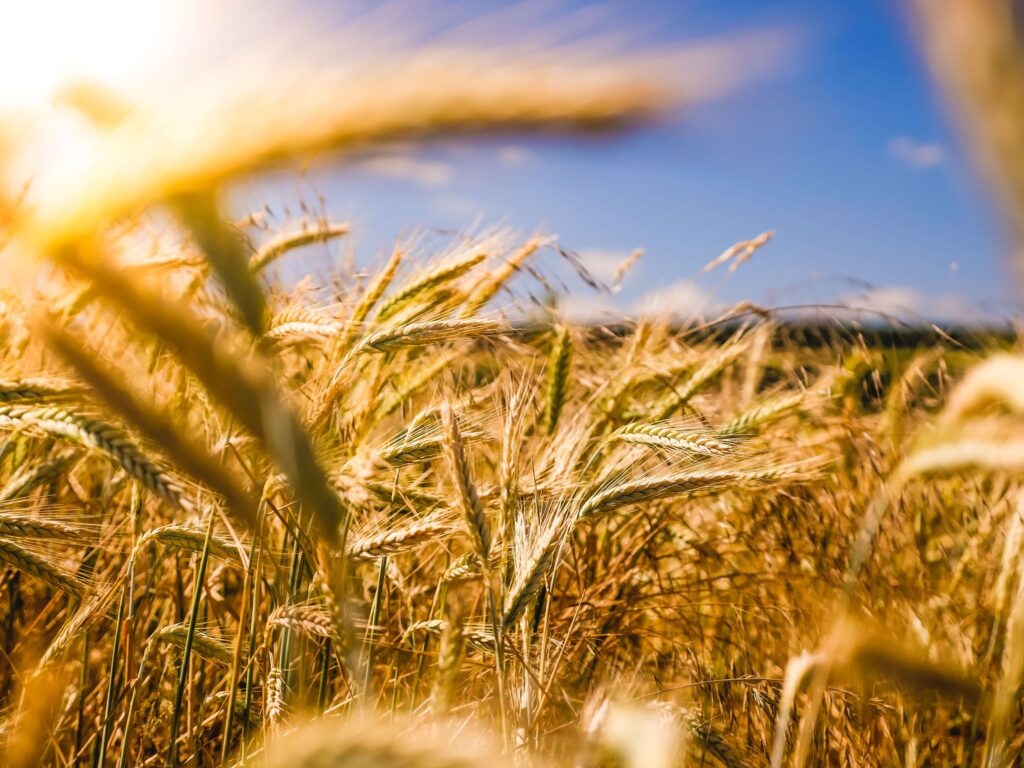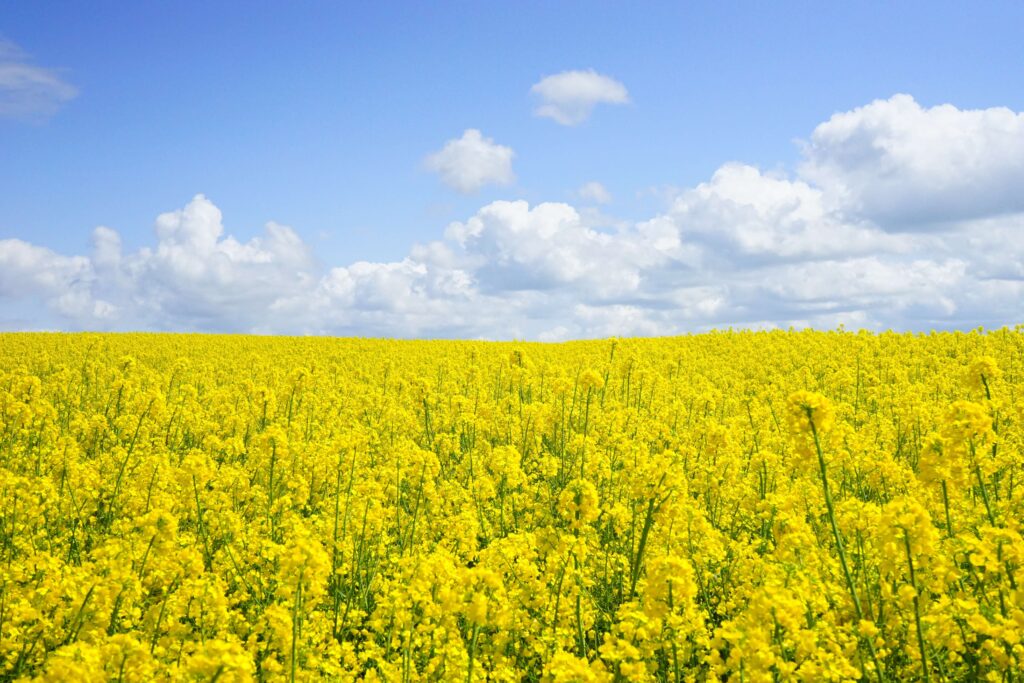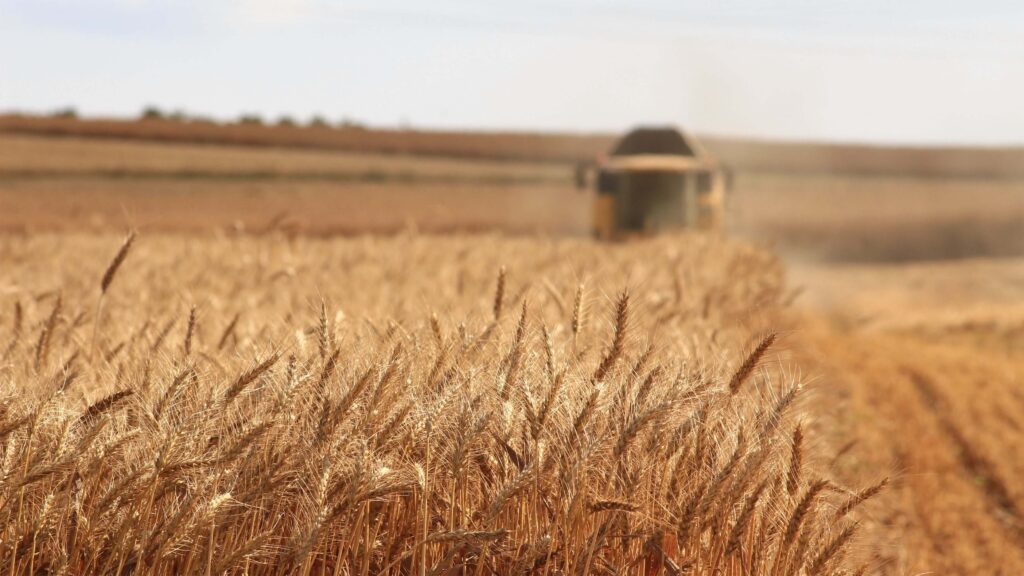Welcome to Organic September, a month dedicated to celebrating the beauty and benefits of organic living.
In this blog, I’ll explore the world of organic farming, sustainability, and the organic industry, and why “going organic” is not just a trend but a conscious choice for a healthier planet.
The Organic Farming Revolution
Organic farming methods are designed with a profound commitment to sustaining the health of our planet.
Unlike conventional agriculture, organic farming prioritises the well-being of the soil, minimises pollution, and contributes to a more harmonious environment.
One of the core principles of organic farming is a commitment to “nature-friendly farming.” By adopting these methods and making changes to our food systems, we can play a crucial role in mitigating the effects of climate change.
Organic practices align with the goal of keeping global warming below 2°C, a critical threshold for the health of our planet.
Reducing Greenhouse Gas Emissions
One of the most significant advantages of organic farming is its reduced reliance on manufactured chemical fertilisers (I know…yuk).
These fertilisers, often imported from abroad and produced by burning fossil fuels, are a major contributor to greenhouse gas emissions.
In fact, the creation of artificial fertilisers consumes 3-5% of all global natural gas.
Organic farmers follow a different path.
They prioritise the use of natural fertilisers, such as animal manures and “cover crops.”
By avoiding synthetic fertilisers, they reduce greenhouse gas emissions and contribute to a healthier atmosphere. Happier days.
Preserving Our Ecosystems: The Peat Ban
The Soil Association Organic Standards emphasise the importance of preserving peat bogs and peatlands.
These ecosystems act as “carbon sinks,” vital for combating climate change and supporting biodiversity. To protect these valuable natural resources, the use of peat in composts is severely restricted within the organic farming community.
By adopting this restriction, organic farming contributes to the conservation of these crucial carbon sinks, helping to mitigate the effects of climate change and protect our delicate ecosystem.
Nitrogen Management for Clean Water and Air
Nitrogen, an essential element for life on Earth, can become a dangerous pollutant when used in excess.
Synthetic nitrogen fertilisers, commonly used in conventional agriculture, can lead to environmental pollution, including “ocean dead zones” that deprive aquatic life of vital oxygen.
In contrast, organic farming’s approach to nitrogen management reduces the risk of such environmental pollution. By emphasising natural and sustainable nitrogen sources and practices, organic farmers help protect our air, rivers, soils, and seas.



We love organic farmers!
The Role of Healthy Soils in Fighting Climate Change
Healthy soils are a potent weapon in the fight against climate change. Organic farming revolves around nurturing and enriching the soil through composting, manure application, and regular crop rotations.
By keeping the soil covered with different crops throughout the year, organic farming helps build “soil organic carbon.”
As a result, organic farming stores more carbon in the soil, on average, nearly 2 tonnes more per football-pitch-sized area. WOW.
This carbon sequestration is a vital part of our collective efforts to combat climate change.
The Rising Popularity of Organic Living
Organic living is experiencing a surge in popularity for several compelling reasons. For one, I pretty much live an organic food, drink and beauty life.
And, as we become more aware of the environmental and health impacts of our choices, organic practices are gaining recognition for their positive contributions to both our well-being and the planet’s health.
Healthier Eating Habits
People are increasingly prioritising their health and well-being, and this extends to the food they consume. Take me for example.
The organic foods I consume, are free from synthetic pesticides, MSG (monosodium glutamate), artificial sweetners, wheat, gluten, milk, and genetically modified organisms (GMOs), making them a healthier choice.
They are also known to contain higher levels of essential nutrients, such as vitamins and antioxidants, which can benefit our overall health.
The connection between our food choices and the environment has become undeniable.
Organic farming methods reduce the use of harmful chemicals and pesticides that can contaminate soil, waterways, and ecosystems. By choosing organic products, individuals contribute to the preservation of biodiversity and the reduction of pollution.
Organic Beauty: A Natural Extension
The benefits of organic living extend beyond our plates and into our skincare and beauty routines.
Organic beauty products are crafted with the same commitment to purity and sustainability. They are free from harsh chemicals, parabens, and synthetic fragrances, making them gentle on the skin and environmentally friendly.
Go Organic for a Better Future
As we celebrate Organic September, let’s make conscious choices as they’ll have a profound impact on our health and the planet’s well-being.
Embracing organic living, whether through the food we eat or the products we use, is a meaningful step toward a more sustainable and harmonious future. By supporting organic practices, businesses, and living, we not only invest in our health but also contribute to a healthier planet for generations to come.
So, go ahead, and make the conscious choice to go organic. It’s better for you, better for the planet, and better for a brighter, greener future.
Sources:
Organic is Better for the Planet | Soil Association, ChatGPT, RHS Crop Rotation
